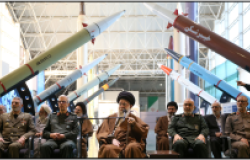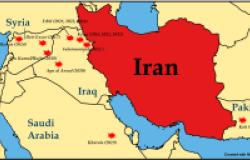Melding Counterinsurgency and Counternarcotics in Afghanistan
with Vanda Felbab-Brown, Assistant Professor, Security Studies Program, School of Foreign Service, Georgetown University
Overview
This event was co-sponsored by the Woodrow Wilson Center (International Security Studies, Middle East Program, and Asia Program), the Council on Global Terrorism, and Georgetown University's Center for Peace and Security Studies.
The recent spike in opium production and the resurgence of the Taliban in Afghanistan have been widely reported on in the Western media. These two intertwined phenomena were the focus of the analysis presented by Professor Vanda Felbab-Brown, who has studied drug interdiction efforts from Colombia to Burma.
The "unprecedented" rise of opium in Afghanistan is largely a byproduct of inappropriate and ineffective counternarcotics strategies, Felbab-Brown asserted. Last year approximately 8,200 metric tons of opium supplied 90% of the world's demand and comprised up to a third of Afghanistan's economy. Opium growing is a fundamental part of Afghanistan's socioeconomic and political makeup, and it is estimated that opium provides 20-40% of the Taliban's profits.
The newly robust insurgency in Afghanistan, made up of Pashtun fighters, forces loyal to Gulbuddin Hekmatyar, the Taliban and Al Qaeda, is not about to be forcibly put down by NATO troops, Felbab-Brown said. With ever growing numbers of Afghan civilians cultivating poppies, the insurgents protect their livelihoods and, in turn, receive popular support.
Felbab-Brown sought to dispel three myths that are commonly associated with the opium trade in Afghanistan. If the Taliban were to return to ruling the country, she said, the opium trade would not disappear as commonly believed. Whatever religious opposition the Taliban might have to growing poppies, revenues from the drug trade would take precedence.
A second myth Felbab-Brown addressed was the Taliban's supposed 2000 eradication, when opium production fell almost to nothing. That lull, she said, would not be sustainable as it was accomplished through force, threats of violence and widespread bribery not to plant poppies. The worldwide spike in prices it caused was a major incentive in the next year's return of the crop.
Third, contrary to popular belief, Felbab-Brown argued that profitability is not the primary consideration for Afghan farmers who grow opium. According to this view, poppies are grown because other crops do not pay as well. On the contrary, farmers grow opium because that is the only access they have to the crucial commodities of land and microcredit. Throughout Afghanistan, Felbab-Brown said, land rental and microloans can be obtained only from opium growers and sellers.
Over time, U.S. and NATO counternarcotics strategies have morphed and shifted considerably. After the U.S.-NATP intervention in late 2001, the approach was essentially a laissez-faire one that paid little attention to poppy cultivation. In 2002, when Great Britain took over the anti-drug sector, it preferred a soft touch and advocated methods such as compensating farmers to grow other crops. Predictably, this approach was plagued with corruption, money supply and distribution issues.
In 2004, the policy changed to one of interdiction and manual eradication. Using DynCorps-trained teams, the theory was to break up the trafficking side while eliminating the crops. This strategy too was bedeviled with problems. Local tribal groups used interdiction teams to eliminate tribal rivals and competitors in the trafficking business. As "mom-and-pop" opium growing was eliminated, the country's drug sector became vertically integrated. This was spurred by the resurgent Taliban who took advantage of the pauperization of farmers too poor to bribe local interdiction or eradication teams. The weakening of local tribal authorities by the Taliban, said Felbab-Brown, is an especially ominous sign for NATO.
Thank you for your interest in this event. Please send any feedback or questions to our Events staff.










